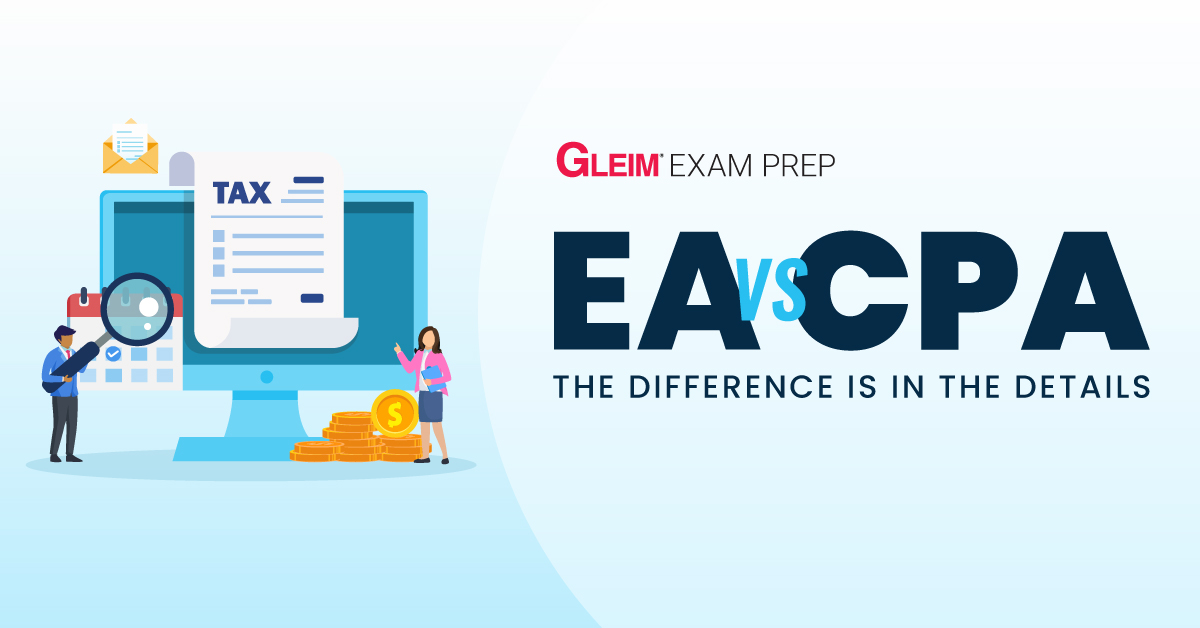Contact Us : 800.874.5346 International: +1 352.375.0772

When it comes to accounting and finance, there are two main types of tax professionals: CPAs and EAs. Both roles have unique responsibilities, and it can be difficult to decide which is right for you.
In this post, we will compare and contrast the two professions in detail. We will also discuss the kinds of work that each one performs on a daily basis, as well as their respective salaries and job prospects.
EAs, or Enrolled Agents, are federally-authorized tax preparers who specialize in taxation. They represent taxpayers before the IRS and can provide expert advice and guidance on any tax issue. EAs must meet requirements set by the IRS to become licensed.
CPAs, or Certified Public Accountants, are licensed accountants who specialize in providing financial advice and services to businesses and individuals. They typically prepare taxes, review and consult on financial statements, and provide audit services.
The primary difference between EAs and CPAs lies in the type of work they do, although there are some similarities too. Both professions require a strong understanding of accounting principles and financial regulations. Additionally, both are able to prepare tax returns for individuals and businesses, as well as providing other tax-related services.
However, an EA’s job is limited to taxation, whereas a CPA’s responsibilities are much broader. CPAs are qualified to perform more specialized tasks, such as auditing and consulting. They may also be called upon to provide advice on financial matters for their clients or business organizations.
By contrast, Enrolled Agents (EAs) specialize in tax-related work. They are knowledgeable about the tax code and can help individuals and businesses navigate complex tax laws.
The typical day of an EA or a CPA will depend on the type and size of their practice. For example, EAs may spend much of their time preparing individual tax returns, while CPAs may handle complex audits and financial consulting projects.
EAs can take on their own clients immediately, which gives them the flexibility to choose their working conditions. They can work in an office during regular business hours, but they can also work remotely or travel to clients’ homes and offices to provide tax-related services.
CPAs can work in a traditional office setting in a public accounting firm or corporation and typically have specific working hours. Like EAs, they can also open their own practices to handle their own clients.
EAs are expected to have a deep understanding of federal and state tax codes, as well as thorough knowledge of the IRS’ policies and procedures. They must be able to analyze financial information, identify potential problems with clients’ taxes, and provide sound advice on how to address issues. In addition, EAs may be called upon to represent clients before the IRS and other government agencies.
CPAs have broader responsibilities that extend beyond taxation. They must be able to analyze financial data, manage budgets, evaluate investments, provide advice on corporate governance, and develop strategies for improving profitability. In addition, CPAs may be tasked with auditing company accounts or preparing financial statements.
EAs and CPAs can both expect to make a good living in the accounting field. According to Glassdoor Opens in new window, the average salary for EAs is around $59,000 per year. That number reflects the base pay and does not include tips, commissions, profit shares, etc.
For CPAs, the average yearly salary Opens in new window is around $82,000. As with EAs, the number does not include other forms of compensation.
In terms of job prospects, both professions are expected to experience strong growth over the next decade. However, the demand for CPAs is higher. There are many reasons why an individual or organization may need a CPA, but if the client requires specific tax-related services, hiring an EA makes sense.
The decision of whether to become an EA or CPA will depend on your interests, qualifications, and career goals. If you’re interested in specializing in taxation, then becoming an EA is a great option. It involves fewer education and licensing requirements than becoming a CPA and provides the opportunity to be self-employed as soon as you’re licensed.
If, however, you’d like to work with a wider range of financial topics and have access to higher salaries, then becoming a CPA is the way to go.
Struggling to choose? Read this post to learn which certification is better for you!
No matter which profession you choose, having a solid understanding of accounting principles and tax laws will be key to your success. To get started on the right path with your studies, consider signing up for Gleim EA or CPA Exam Prep. With comprehensive study materials and practice exams, you’ll have the best chance of achieving your goals.
Take some time to think about which profession is truly right for you before getting started on the licensing process. With hard work and dedication, you’ll be able to carve out a successful career as an EA or CPA.